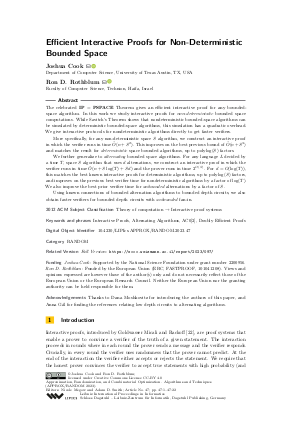LIPIcs.APPROX-RANDOM.2023.47.pdf
- Filesize: 0.85 MB
- 22 pages

 Creative Commons Attribution 4.0 International license
Creative Commons Attribution 4.0 International license







Feedback for Dagstuhl Publishing